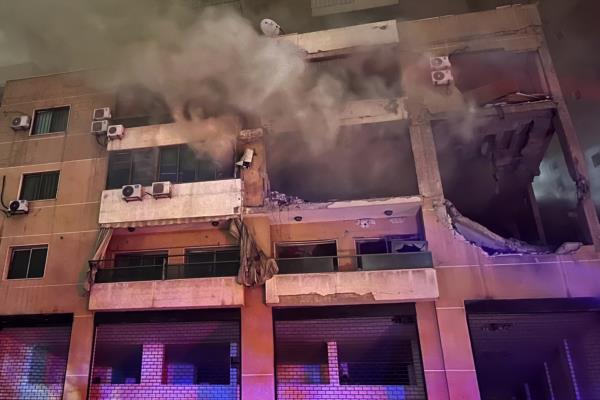
In Iran, tragedy struck as two explosions rocked the vicinity of the grave of slain Iranian military leader Qasem Soleimani. Iranian state media, citing officials, reported that the explosions resulted in a devastating toll: 73 fatalities and 170 injuries. Soleimani met his untimely demise four years ago when a US airstrike, ordered by President Trump, targeted him at Baghdad International Airport. Iranian officials have labeled this horrific incident a 'terror attack,' leaving many questions begging for answers.
Meanwhile, another incident paints a picture of intrigue. Confirming earlier speculations, a US official revealed that it was Israel responsible for the strike in Lebanon that claimed the life of senior Hamas leader Saleh Aruri. The strike occurred in a prominent office building in southern Beirut, leading to the demise of four individuals, including two other leaders from Hamas' military wing. However, Israeli Prime Minister Benjamin Netanyahu's senior advisor promptly denied any official responsibility for the attack. Israel has remained tight-lipped about the incident, subtly asserting that, regardless of their involvement, the strike was narrowly aimed at the Hamas leadership.
This action by Israel sends a clear message to the world. Firstly, it confirms their intention to target senior Hamas officials, highlighting their objective. The targeted individual, Saleh Aruri, held a significant role within Hamas, responsible for planning numerous operations against Israel. Moreover, he had close links to Hezbollah and Iran, emphasizing the broader network of actors involved in anti-Israel activities. By eliminating such a key figure outside of the Gaza theater, Israel aims to isolate Hamas' ultimate leader, Sinwar, and create confusion within their ranks.



As Israel moves into a new phase of operations, a reevaluation of their tactical approach is in order. While de-intensifying operations in Northern Gaza, they plan to maintain high intensity in the south. This strategic shift not only reduces the strain on Israel's manpower but also aligns with the objectives conveyed by the Biden administration. The Israeli Defense Forces (IDF) believe that they are successfully accomplishing their goals, a sentiment further echoed by the Biden administration's desire to work privately and constructively with their Israeli allies.
These significant developments illustrate the complex dynamics within the region. As events unfold and tensions persist, the global community eagerly watches, awaiting further updates on the situation in Iran and Lebanon. It remains to be seen how these incidents will shape the future and the delicate balance in the Middle East.







